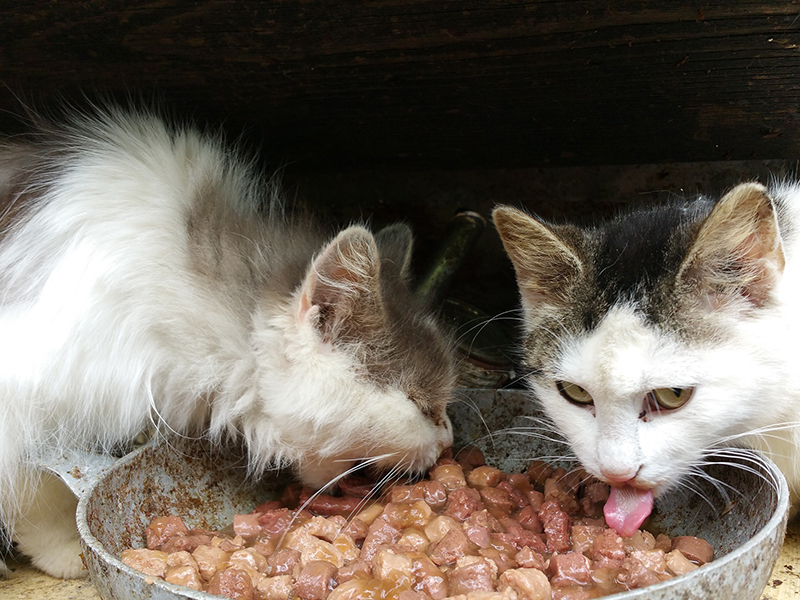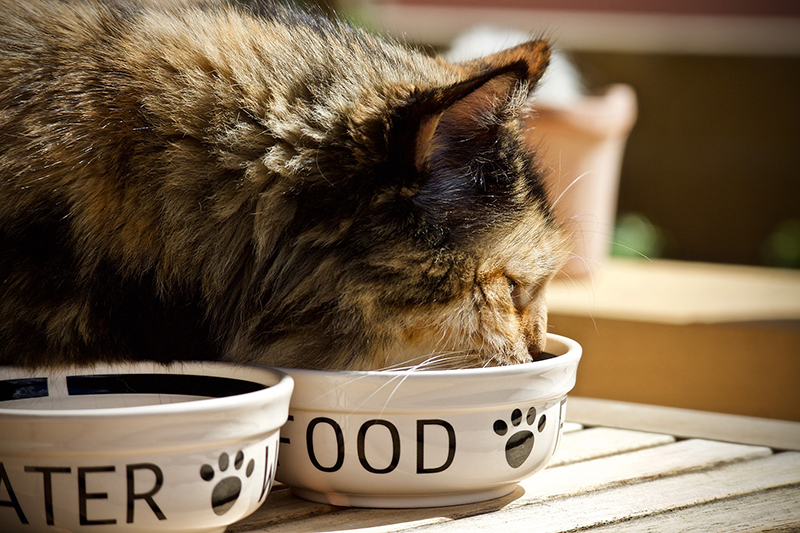Healthily feeding your cat can go a long way in prolonging its lifespan.As such, you should only feed your pet on the recommended diet to guarantee that all its nutritional needs will be met. It is worth noting that since cats are predominantly obligate carnivores, they mostly feed on animal products for their nutrients.
The general nutrient proportions of cats include high protein amounts, moderate fat amounts, and minimal carbohydrates. Here are a few tips on feeding your cat:
Choosing the Appropriate Food
Commercially prepared foods for cats are known to contain the appropriate nutrient and calories balance for cats. However, not all of these foods are manufactured with consideration of the set nutritional requirements. This is why there is a need to ensure that you only choose pet food that is appropriate for your cat. When buying food for your pet, ensure that you read through the ingredients’ list, including the percentages of the nutrients in the food.

Always opt for food that contains meat, seafood, or meat products as such foods supply essential animal-source ingredients. After identifying the appropriate food to purchase, choosing the type of food depends on your cat’s preferences. This is because some cats prefer canned food to dry food, while others prefer a combination of the two types of food.
Try to Avoid Homemade Diets
Preparing cat food at home is not as easy as most people presume. This process is not only time-consuming but also tiresome. Additionally, the recipe you use may not contain the required proportions and quantities for your pet. It is advisable for cat owners to purchase already prepared foods unless under the instruction of a veterinarian to formulate cat food at home. In such an instance, the veterinary should recommend the recipe to use depending on the nutritional needs of your pet.
Limit the Treats You Give
Cat owners should know that while feeding your pet with an occasional treat is not harmful; these foods are not nutritionally balanced and complete. As such, treats should only be given occasionally and should not exceed 10-15% of the daily caloric intake of a cat.

What is more important about treats is that raw meat is not a recommendable treat for cats. This is because raw meat is a potential carrier for toxoplasmosis, harmful bacteria, and other potentially infectious diseases. Some cats develop neurological disorders when they consume raw food.
Other Considerations
Cats are known to be choosy, especially on what they eat and where they eat from. As such, it is worth noting that noise, heavy-traffic, dirty food containers, other animals, or litter boxes may act as a feeding deterrent for cats. You should be cautious of your cat’s eating habits for purposes of making necessary adjustments. This will play a vital role in feeding in a healthy manner for optimum health and wellbeing of the cat.

While feeding your cat using highly nutritious food, it is paramount to observe the cat’s weight gain. This helps in ensuring that the cat neither becomes obese or underweight. Either of these weight extremes can be potentially harmful to the cat’s health.

